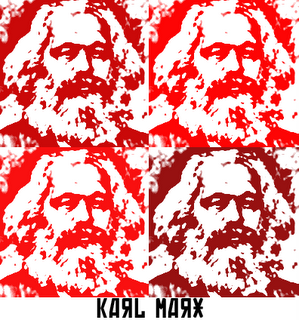The Big Democracy Smack-Down
 Norman Rockwell's famous "Freedom of Speech" (Image and concept forbidden by order of SPAM)
Norman Rockwell's famous "Freedom of Speech" (Image and concept forbidden by order of SPAM)Ironically, it was SPAM, that "Axis of Idiots" who set the wheels of this holy apparition in motion.
Ol' deposed King G. started this thing by simply giving a speech on Democracy Day. It was a heartfelt effort that showed a flawed man in turmoil saying he was "compelled" to take over the government when he did. He tacitly acknowledged his flaws yet eloquently revealed a fairly good sense of democratic philosophy and practice. His speech didn't reveal State secrets, it didn't directly harm anyone, and it DID sound like a plea for political sanity. This was no more than a citizen exercising the most democratic of freedoms: the freedom to criticise one's government--more commonly known as Freedom of Speech.
So, what do our boys at SPAM do? Denounce the whole speech as undemocratic, counterproductive, smelly and everything else they thought applicable. Something had to be done, they all said. We must punish the King for speaking out against us. (My how the boys are starting to sound more like Maoists every day). Let's pass some sort of decision to officially go after the King for this travesty. Let's get him good this time. No one should be allowed to criticise us, said the boys at the pig-trough.
But then it came. A clear and beautiful strike from the sword of Manjushree. Thursday, the Chairman of Nepal's Bar Association (NBA), Bishowkanta Mainali said that there is no legal provision to penalise the King. Basically, all the government can do is condemn the speech and that's that. The King is no longer the head of state and is simply stating his opinion.
Perfect, beautiful. You can't hold a good democratic principle down when there's someone sane ready with the proper interpretation.
But blogdai fears we haven't heard the last from our royally punitive SPAM (or should I say, spaM). Look for them to go around the sound advice of the Nepal Bar and pass some meaningless law or amend their phony interim constitution once again so that anyone speaking ill of the government can be punished. They'll keep fudging their little piece of paper until they've conceived a document that Mussolini himself would be proud to sign.
When will the lazy and the moronic members of the world community come to their senses and realize that spaM continues to reject all things democratic?
-=blogdai



